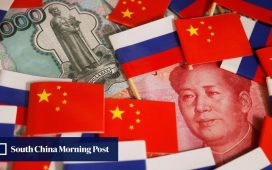“They care more about their career prospects here, how much they would be making and whether they could put their strengths to good use,” she said. “As Hong Kong’s living costs are high, they also consider the location of their accommodation in relation to the office.”
The domestic national security legislation, mandated under Article 23 of the Basic Law, the city’s mini-constitution, came into effect on March 23.
The legislation, which complements the national security law imposed by Beijing in 2020, covers 39 offences divided into five categories: treason; insurrection, incitement to mutiny and disaffection and acts with seditious intention; sabotage; external interference; and theft of state secrets and espionage.
Chambers of commerce have urged the government to provide further clarity over the law by continuing to engage with the business community, with authorities saying the passing of the legislation will allow the city to shift its focus to the economy.
Both Beijing and local authorities have consistently sought to reassure the sector that the new legislation will not disrupt the normal operations of foreign enterprises, but rather it aims to create a secure business environment.

Wong said Hong Kong’s innovation ecosystem was still attractive to both local and overseas talent given the number of start-ups and companies, as well as their business plans, and the city’s role as a platform for Western companies looking to expand their regional footprint.
CEO Albert Wong Hak-keung said that the Science Park, located in Pak Shek Kok, provided accommodation for about 500 people with shared living and work spaces under a scheme called InnoCell.
He said the park was looking for land to construct a new dormitory for the scheme, but in the meantime had expanded the initiative by collaborating with a developer to provide several hundred additional rooms in Tai Kok Tsui.
“The most important thing is that we can retain talent in Hong Kong with relatively affordable accommodation. It’s a small space but sufficient,” he said. “The main obstacle facing them in Hong Kong is expensive accommodation, so this is the first thing I want to tackle.”
Language barrier, living costs pose hurdles to mainland talent eyeing Hong Kong
Language barrier, living costs pose hurdles to mainland talent eyeing Hong Kong
The accommodation caters to both individuals and families, helping to provide a community for professionals who have moved to the city for work.
The institution also launched a global internship programme last year with Stanford University, providing students – especially engineers or those studying STEM-related subjects – with an opportunity to work at the Science Park for two to three months to experience an East-meets-West culture first-hand in the workplace.
“We are expanding the programme this year. In addition to Stanford University, there are many other top universities including Tsinghua University, UC Berkeley and University of Chicago,” Fanny Wong said.
CEO Albert Wong said about 1,000 positions were open at any one time from the 1,700 companies at the park.
“We are craving talent. We are not only looking for overseas talent, but also local,” he said, encouraging students to choose relevant subjects at university for a career in the innovation sector.














